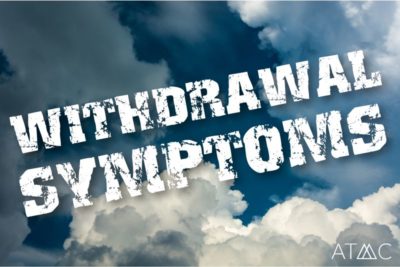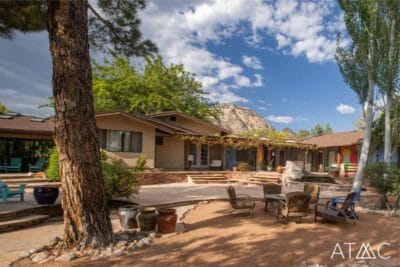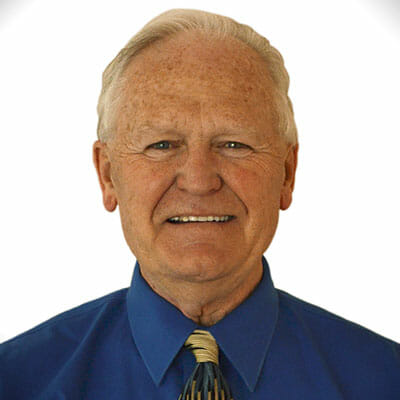Last Updated on August 1, 2022 by
Alternative to Meds Editorial Team
Medically Reviewed by Dr John Motl MD
Last Updated on August 1, 2022 by
Alternative to Meds Editorial Team
Medically Reviewed by Dr John Motl MD

Unless there is a medical reason to do so, as will be covered in more detail below, never abruptly stop taking a drug like Geodon, as doing so can introduce factors that may not only be injurious but can protract the process significantly.
Safely and gradually tapering from Geodon is the recommended procedure in withdrawal. It may take weeks or even several months to gently taper off, and you may require special help to meet all of the challenges and changes. One withdrawal side effect to monitor closely is a return of symptoms that may occur after stopping an antipsychotic medication. Mania or depression, psychosis, or an agitated state may reappear once the medication has been stopped.
Seek competent medical guidance should you decide to discontinue taking Geodon, and talk to your doctor about the steps you need to take for successful and gentle tapering. More information on this topic is included in the section of this article entitled “Discontinuing/Quitting Geodon” which you can find below.
The severity of these symptoms can depend on such things as the duration of the prescription, the dosage, general health, metabolism rate, age, and many other factors.1
There are ways to help stay healthy and encouraged during a taper, and assistance may be needed to prepare meals, provide comfort and encouragement, or do other day-to-day tasks that would be difficult to do without some personal support.
Inpatient treatment can often make a significant difference in the ease and comfort of withdrawal.
Considering the side effects and loss of passion that typically come with antipsychotics, you might wonder if a lifetime of being medicated is really necessary. Yet, any attempts at coming off previously may have been a repeat of the same disaster. Alternative to Meds Center has designed a program to enable safe reduction and in many cases complete Geodon withdrawal.

Geodon (ziprasidone) is an atypical second-generation antipsychotic medication (SGA) that has been available since 2001 in the US. Studies and case reports have shown a link between Geodon and risks to the heart, however, the drug causes weight gain to a lesser degree than most other SGAs.11,12
Geodon (ziprasidone) is FDA approved for treating schizophrenia, acute agitation in schizophrenic patients, bipolar mania, and mixed episodes of mania and depression.1,7
Antipsychotic medications in all their many versions are not a cure for the conditions for which they are prescribed. The field of research has shown there are gaps in the understanding of conditions such as schizophrenia, and that drug therapy alone may not produce results that lead to a more satisfying quality of life. We highly recommend learning more about alternatives to antipsychotic medications to enhance the quality of each and every beautiful life, at whatever stage of healing a person may find themself.13
There are other conditions that drugs such as Geodon are prescribed for besides the officially FDA-approved uses. According to a 2012 review of the medical literature, there is not sufficient evidence of the efficacy of any off-label prescribing of atypical antipsychotics. The FDA put a black box warning on Geodon specifically warning against the increased risk of death for dementia patients. Nonetheless, the practice of off-label prescribing continues. 8
*Women are diagnosed with depression more often than men according to Dr. Paul Albert.4 Women of childbearing age should take note that in clinical drug trials on pregnant rabbits, birth defects and stillborn births showed much reason for concern.
Geodon has developed less of a street presence than similar atypical antipsychotic drugs such as Quetiapine. However, any drug can wind up being sold illegally through diversion. Geodon (ziprasidone) flattens out sensations rather than enhances them. However, research shows that some drug users may use antipsychotics as a way to end off a binge of stimulant drugs, or as a way to counteract other drug-induced adverse effects.5,9
Ziprasidone hydrochloride is the generic name for Geodon in capsule form. The generic drug in injectable form is called ziprasidone mesylate.1
There are some troubling, though relatively rare, side effects and health risks that can occur while taking Geodon. Of particular note, some are severe, causing the FDA to place a black box warning on the drug packaging.1
These symptoms may change over time, and if they intensify a person should seek medical attention immediately to ensure health and safety, according to the manufacturer’s drug label.1
Oftentimes, Geodon is given to a person who is in a crisis. Antipsychotics are commonly used to control extreme episodes. Unfortunately, little attention is given to whether or not the crisis is a temporary situation. More times than not, the person is left on a high dose, under the assumption that their diagnosis is permanently fixed. Although it is relatively easy to find doctors who will induct these kinds of medications, it is often a virtual ghost town when it comes to finding a professional who is versed in how to properly reduce or eliminate the medication when that time comes. You may find that you have to provide information to your doctor that he or she was not aware of when it comes to medication reduction. The subject is not taught in medical school.
Always seek competent medical guidance should you decide to discontinue a medication like Geodon, and talk to your doctor about the steps you need to take for successful and gentle tapering.
Also, be sure to ask your doctor if they are familiar with the steps you need to take for a successful Geodon withdrawal.
The following are some of the most asked questions about certain Geodon effects, and other important topics of interest. If more information is needed on these or other topics, please contact us and we will help.

Our center provides a peaceful and relaxed setting, with the advantages of friendly support staff and caring therapists, nurses, and doctors. Our staff shares a common passion for helping their clients succeed.
For coming off medications such as Geodon, the center offers a vast number of therapies to assist and ease the process, in a safe and well-staffed, welcoming inpatient facility. You can visit our services overview page to get more information on these support services while inpatient at Alternative to Meds Center.
The task of improving health during the reduction of, and completing safe Geodon withdrawal, is one that requires competence, technical proficiency, and caring. For more information on our facility’s excellent, compassionate, and effective inpatient treatment for Geodon withdrawal, please contact us.
1. Geodone (Ziprasidone HCl) FDA drug label [Revised 2008 Jun] [cited 2022 Aug 1]
2. Iqbal M et al., “The Potential Risks of Commonly Prescribed Antipsychotics During Pregnancy and Lactation” US National Library of Medicine [2005 Aug 2] PMID 21152171 [cited 2022 Aug 1]
3. Sharma A, Ramaswamy S, Dewan VK. Resolution of Ziprasidone-Related Tardive Dyskinesia With a Switch to Aripiprazole. Prim Care Companion J Clin Psychiatry. 2005;7(1):36. doi: 10.4088/pcc.v07n0107. PMID: 15841193; PMCID: PMC1076450. [cited 2022 Aug 1]
4. Albert P, “Why is depression more prevalent in women?” J Psychiatry Neurosci. July 2015 PMID 26107348 [cited 2022 Aug 1]
5. Kutcher S et al., “ExpertCanadian consensus suggestions on the rational, clinical use of ziprasidone in the treatment of schizophrenia and related psychotic disorders.” Neuropsychiatric Disease and Treatment [2005 Jun] PMID 18568067 [cited 2022 Aug 1]
6. Silvestri S, Seeman MV, Negrete JC, Houle S, Shammi CM, Remington GJ, Kapur S, Zipursky RB, Wilson AA, Christensen BK, Seeman P. Increased dopamine D2 receptor binding after long-term treatment with antipsychotics in humans: a clinical PET study. Psychopharmacology (Berl). 2000 Oct;152(2):174-80. doi: 10.1007/s002130000532. PMID: 11057521. [cited 2022 Aug 1]
7. Bouchette D, Fariba K, Marwaha R. Ziprasidone. [Updated 2021 Jun 9]. In: StatPearls [Internet]. Treasure Island (FL): StatPearls Publishing; 2021 Jan-. Available from: https://www.ncbi.nlm.nih.gov/books/NBK448157/ [cited 2022 Aug 1]
8. Maher AR, Theodore G. Summary of the comparative effectiveness review on off-label use of atypical antipsychotics. J Manag Care Pharm. 2012 Jun;18(5 Suppl B):S1-20. doi: 10.18553/jmcp.2012.18.s5-b.1. PMID: 22784311. [cited 2022 Aug 1]
9. Kim S, Lee G, Kim E, Jung H, Chang J. Quetiapine Misuse and Abuse: Is it an Atypical Paradigm of Drug Seeking Behavior?. J Res Pharm Pract. 2017;6(1):12-15. doi:10.4103/2279-042X.200987 [cited 2022 Aug 1]
10. Vasan S, Padhy RK. Tardive Dyskinesia. [Updated 2021 May 3]. In: StatPearls [Internet]. Treasure Island (FL): StatPearls Publishing; 2021 Jan-. Available from: https://www.ncbi.nlm.nih.gov/books/NBK448207/ [cited 2022 Aug 1]
11. Lieberman JA, Stroup TS, McEvoy JP, Swartz MS, Rosenheck RA, Perkins DO, Keefe RS, Davis SM, Davis CE, Lebowitz BD, Severe J, Hsiao JK; Clinical Antipsychotic Trials of Intervention Effectiveness (CATIE) Investigators. Effectiveness of antipsychotic drugs in patients with chronic schizophrenia. N Engl J Med. 2005 Sep 22;353(12):1209-23. doi: 10.1056/NEJMoa051688. Epub 2005 Sep 19. Erratum in: N Engl J Med. 2010 Sep 9;363(11):1092-3. PMID: 16172203. [cited 2022 Aug 1]
12. Harrigan EP, Miceli JJ, Anziano R, Watsky E, Reeves KR, Cutler NR, Sramek J, Shiovitz T, Middle M. A randomized evaluation of the effects of six antipsychotic agents on QTc, in the absence and presence of metabolic inhibition. J Clin Psychopharmacol. 2004 Feb;24(1):62-9. doi: 10.1097/01.jcp.0000104913.75206.62. PMID: 14709949. [cited 2022 Aug 1]
13. Abbott, A. Schizophrenia: The drug deadlock. Nature 468,158–159 (2010). https://doi.org/10.1038/468158a [cited 2022 Aug 1]
14. Klein L, Bangh S, Cole JB. Intentional Recreational Abuse of Quetiapine Compared to Other Second-generation Antipsychotics. West J Emerg Med. 2017 Feb;18(2):243-250. doi: 10.5811/westjem.2016.10.32322. Epub 2016 Dec 6. PMID: 28210359; PMCID: PMC5305132. [cited 2022 Aug 1]
Originally Published May 20, 2019 by Diane Ridaeus

Dr. Motl is currently certified by the American Board of Psychiatry and Neurology in Psychiatry, and Board eligible in Neurology and licensed in the state of Arizona. He holds a Bachelor of Science degree with a major in biology and minors in chemistry and philosophy. He graduated from Creighton University School of Medicine with a Doctor of Medicine. Dr. Motl has studied Medical Acupuncture at the Colorado School of Traditional Chinese Medicine and at U.C.L.A.

Diane is an avid supporter and researcher of natural mental health strategies. Diane received her medical writing and science communication certification through Stanford University and has published over 3 million words on the topics of holistic health, addiction, recovery, and alternative medicine. She has proudly worked with the Alternative to Meds Center since its inception and is grateful for the opportunity to help the founding members develop this world-class center that has helped so many thousands regain natural mental health.

Can you imagine being free from medications, addictive drugs, and alcohol? This is our goal and we are proving it is possible every day!
Read All StoriesView All Videos